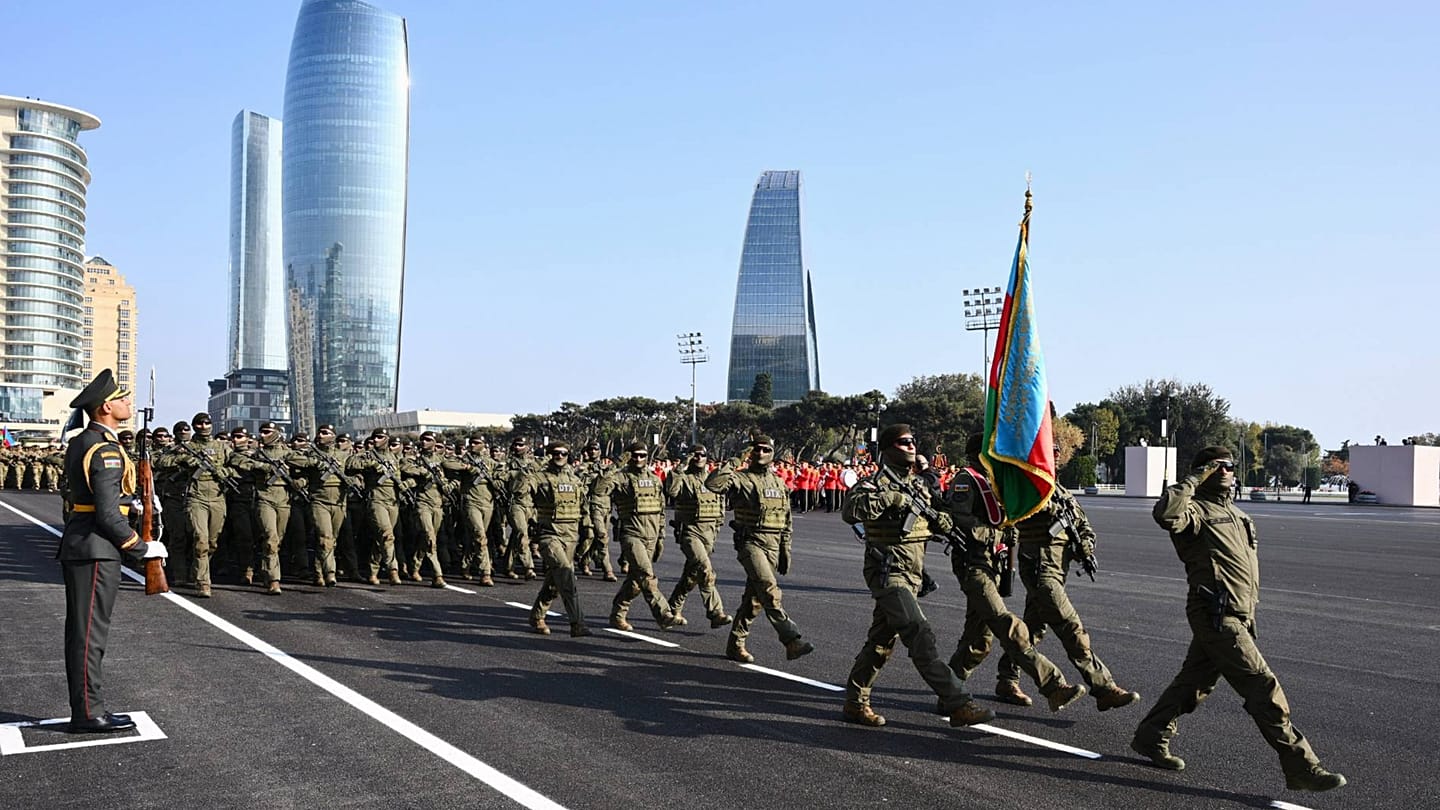
Azerbaijan marked five years since the second Karabakh war with a military parade celebrating victory and regional peace, as President Ilham Aliyev announced plans to align the country’s armed forces with NATO standards following a US-brokered agreement with Armenia ending decades of conflict.
Aliyev celebrated the Victory Day as a momentous achievement for the country breaking from its past, crediting the victory to strategic economic and military developments, while highlighting ongoing reconstruction in Karabakh.
The Azerbaijan president also expressed gratitude to his Turkish counterpart Recep Tayyip Erdoğan and Pakistani Prime Minister Shehbaz Sharif for their support during the conflict as he pointed out that Pakistan’s servicemen participated in the parade for the first time.
“This is a manifestation of the unity of the people and the armies of three countries: Azerbaijan, Turkey and Pakistan,” Aliyev said.
The Turkish president said Karabakh victoryreshaped the geopolitical balances across Asia and Europe and “opened the doors to a new era for our region.”
“We bear no grudge, nor will we ever allow the painful chapters of the past to be repeated. Therefore we see this victory not as an end, but as a milestone on the road towards a lasting peace in the Caucasus”, Erdoğan said, adding that “peace in the Caucasus will serve the prosperity of the entire region”.
Azerbaijan to align with NATO standards
During the meeting with the NATO delegation in Baku last Thursday, Aliyev said the Azerbaijani Armed Forces intend to align with NATO standards and have been working with the Turkish military.
Aliyev said the country had achieved its primary objective of restoring territorial integrity and that defence reforms would remain a priority.
Azerbaijan’s cooperation with NATO extends to energy security and regional connectivity, in addition to its previous participation in peacekeeping operations.
In August, the leaders of Azerbaijan and Armenia signed an agreement aimed at ending the decades-long Karabakh conflict.
The White House said that, as part of the deal, the US would also help build a central transit corridor, to be named the Trump Route for International Peace and Prosperity, or TRIPP.
For Baku, the corridor offers a direct land connection to Nakhchivan, strengthens ties with Turkey and consolidates post-war gains through infrastructure diplomacy.
It also strengthens Azerbaijan’s position as a crucial global transport and logistics hub. Initially, Azerbaijan did not want any third party involved and preferred to keep it under Baku’s control, without the US, Europe or Russia’s involvement.
For Yerevan the transport route provides an opportunity to further integrate into wider trade networks, diversify its battered economy and attract foreign investment.
Geopolitically, it would also help Armenia normalise relations with its neighbours, specifically with Turkey.
This move is largely seen as yet another step by Baku and Yerevan in forging a new future for themselves in a new geopolitical reality.
Signing the peace agreement in Washington alongside US President Donald Trump sent a strong signal to Russia about the two countries’ commitment to finding a solution among themselves, while also redirecting their foreign policy focus toward a multi-polar choice.